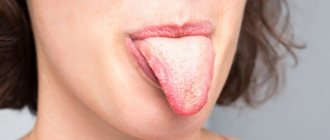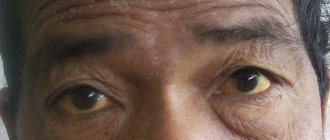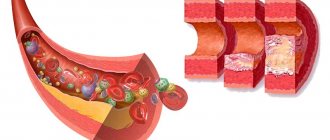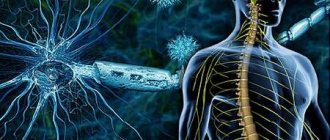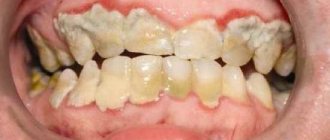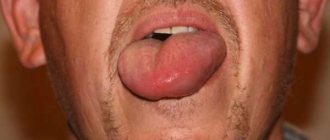What are panic attacks?
Panic attacks are sudden, sudden attacks of fear. They may have various symptoms and be accompanied by deterioration in health. Panic attacks are seemingly causeless and occur unpredictably in ordinary life situations. They happen at times when there is no real threat, so a person suffering from panic attacks feels defenseless and depressed due to the anticipation of the next attack.
Panic attacks can occur during prolonged stress or severe emotional experiences, as well as against a background of severe fatigue and tension. It happens that the cause of a panic attack is some kind of trigger (triggering factor), for example, some noise, smell or crowd. This can happen to people suffering from agoraphobia (Liz Burbo psychosomatics table - opens in a new tab).
Panic attacks usually last no more than 20 minutes. In themselves, they are not a sign of a person’s mental illness. However, if they recur with enviable (or rather, unenviable) regularity, you should try to get rid of them forever. This can be done independently or with the help of a specialist (psychologist, psychotherapist, hypnologist, theta-hiller, NLPer - will open in a new tab).
Panic attacks can present with the following symptoms:
- darkening of the eyes, dizziness, weakness
- anxiety, fear of death
- shortness of breath, shortness of breath
- increased heart rate or change in blood pressure
- mild numbness or incoordination
- nausea
- increased sweating
- body pain (usually in the abdomen or chest)
Since, usually, people do not have a medical diagnosis that explains the sudden appearance of the above symptoms, the resulting feeling of anxiety increases and can turn into severe fear (of death).
General principles of therapy
Panic and anxiety attacks can destroy a person's life, just like any other serious illness. These conditions can and should be treated. Doctors usually offer comprehensive treatment, which includes both psychological effects and medications.
If a person wants to quickly get rid of painful attacks, he will have to radically change his own life, from eating habits to sleep patterns and physical activity.
Of course, switching to a healthy diet and giving up alcohol, smoking, energy drinks and even strong coffee is a prerequisite. But the diet should not only be healthy, it should include a certain range of foods that, as the latest research has shown, help fight depression and restore peace of mind. This set includes the following.
Blueberry. This delicious berry is a veritable storehouse of easily digestible antioxidants. It has such a pronounced effect that doctors advise everyone who finds themselves in a stressful situation to include it in their diet. In addition, it is very tasty and can easily replace desserts filled with sugar and chemicals.
Seeds. Pumpkin, sunflower, flaxseeds - all these seeds are very rich in magnesium, which has the ability to alleviate depression, and also relieves irritability and chronic fatigue. A small handful of seeds instead of a dessert or snack will work as a powerful medicine without side effects.
Cashew nuts. The healing power of these nuts has been known since time immemorial. In folk medicine it is used as an antiseptic, against toothache, bronchitis, asthma, and indigestion. Cashews are also known as a powerful aphrodisiac. The nut is very rich in zinc, which is absolutely necessary for people suffering from panic, anxiety and depression. Cashews rarely cause allergic reactions, so they are suitable for most patients.
Turkey, rabbit, squid. This dietary meat is rich in tryptophan, which is necessary for the body to synthesize serotonin - the so-called happiness hormone. In addition, tryptophan improves sleep, relieves nervous tension and normalizes metabolism, promoting weight loss. The record holders for tryptophan content are red and black caviar, but not everyone can afford to include these products in their daily diet. By the way, cashews also contain a lot of this amino acid, valuable for health.
Spinach. This leafy vegetable is absolutely essential for panic and anxiety disorders as it is very rich in folate, which the body uses to synthesize dopamine. It is the lack of dopamine that leads to the development of anxiety, bad mood, irritability, depression and aggressiveness. Spinach supplies the body with rich building material for the production of this hormone, and the psychological state gradually normalizes.
Milk. The vitamin D contained in milk is needed for more than just bone health. It is also responsible for creating a sense of happiness and well-being. If the body experiences a deficiency of it, then the risk of developing panic attacks increases many times over.
Pistachios. Not only do these delicious nuts contain a full range of substances necessary for the synthesis of dopamine, but also such an activity as freeing the nucleoli from the shell has a calming effect.
Oatmeal. This magical porridge, when regularly included in the menu, normalizes blood composition. And along with excess cholesterol and sugar, chronic fatigue, fear, and irritability go away. They are replaced by vigor, self-confidence and endurance.
Dear readers, if you would like to share an article with friends on other resources, then you can use our buttons that help you instantly post links.
Did you like the article? Share with friends on social networks:
This blog is read and used by 6,939 adherents of a healthy lifestyle and uses its advice and recommendations, so their health is in order, their mood is good, and their work is going well. Read it too.
I agree to the newsletter and accept the privacy policy.
You may also be interested
How to cure bronchial asthma at home - p...
Hello dear friends and readers of Alexey Shevchenko’s blog “Healthy Image...
16 Read more
Preparations for toenail fungus - ointments, varnishes, tablets...
Good day, dear friends of Alexey Shevchenko’s blog “Healthy Image...
12 Read more
HYPOVITAMINOSIS IN THE SYMPTOMATICS OF THE WHOLE ORGANISM
HYPOVITAMINOSIS IN THREATS OF MENTAL DISORDERS Since laboratory methods, with ...
65 Read more
WORMWORM AND TREATMENT WITH FOLK REMEDIES
WORMORMOUS IN THE LIFE OF THE PEOPLES OF RUSSIA...
6 Read more
How to cope with a panic attack on your own
- My head suddenly started spinning,
- Fear. Anxiety. I'm dying!
- My heart beat wildly
- From what?
In order to cope with a panic attack, you must try to pull yourself together and stop the growing fear. To do this, do the following:
- Turn your attention to what is happening around you. Watch children playing, cars driving, talk to someone or call someone. It is necessary to switch your brain and your thoughts to what is happening outside, so as not to focus on your internal feelings and fears.
- If possible, take a sitting position. Feel your body and begin to control it. Make sure that your arms and legs do not perform any involuntary movements (swaying, twitching, stroking).
- Observe your breathing and regulate it, make it calm and even.
- Relax, close your eyes and imagine that you are in a pleasant place, hearing the sound of the sea or the singing of birds.
How to get rid of panic attacks forever and without pills
If you have already experienced panic attacks, you should pay attention to your treatment. For this purpose, it is better for you to contact a specialist (psychologist, psychotherapist, hypnologist, theta-hiller, NLPer, or sign up for a session with me (opens in a new tab). If you decide to cope with panic attacks on your own, the following will help you:
- Try to understand the situation preceding an attack of panic and fear. Understand the reasons for its occurrence and the external factors that provoked it.
- Remember your actions necessary to overcome the state of alarm.
- Try to give yourself the opportunity to rest more and get adequate sleep every day.
- Do more often what brings you true joy and positive emotions.
- Exercise regularly, do morning exercises, play sports, swim or dance.
If your doctor has already prescribed you some pills to take, carry them with you and take them until you feel that you are able to do without them.
These simple measures are actually very effective. If you don’t forget about them, you will most likely be able to forget about panic attacks and many of your other problems forever.
In addition to all of the above, to prevent panic attacks, it is useful to regularly drink soothing teas from chamomile, mint, and lemon balm. You can add honey to tea. You can also use infusions of motherwort (one teaspoon before meals) or oregano (several times a day, ½ cup).
How to help someone with a panic attack
If someone you know has a panic attack in your presence, you can help them in the following ways:
- In a calm voice, tell him that you are nearby and there is nothing to be afraid of (nothing threatens his life), that the attack of fear will soon pass and everything will be fine.
- Look the person in the eyes, take his hands and try to attract his attention to you, distract him from disturbing thoughts.
- By your example, help restore uniform breathing.
- Stay next to him until the anxiety leaves him and the person completely calms down.
When everything is over, advise the person to analyze the reasons for the panic attack and deal with their emotions and fears.
Often, people tend to undergo all kinds of examinations in search of a diagnosis that explains the symptoms that they experienced during a panic attack, without attaching importance to the psychosomatic (opens in a new tab) causes of the disease. Not finding a “suitable” diagnosis for themselves, such people again fall into a state of anxiety.
Causes
Five reasons for strong fear in everyday situations:
- VSD. In the context of a little-studied disease, panic without a reason is difficult to explain. We can say that vegetative-vascular dystonia is the trigger of the disease.
- Delayed response to stress. It is considered a feature of the body. Attacks can occur not only after negative events, but also after joyful experiences if the person’s nervous system is weak.
- Heart diseases. Most often, panic for no reason occurs with mitral valve insufficiency. The heart valve does not close completely, which provokes panic in the body.
- Hyperthyroidism, hypoglycemia. These illnesses create an excellent environment where fear can manifest itself in full force without danger triggers.
- Depression. Mild mental disorders are also considered the basis for the syndrome.
Read more: Women's fears
Unfortunately, panic out of the blue can also arise for unknown reasons. Science and medicine do not know everything about such conditions, but they are quite good at stopping the symptoms.
